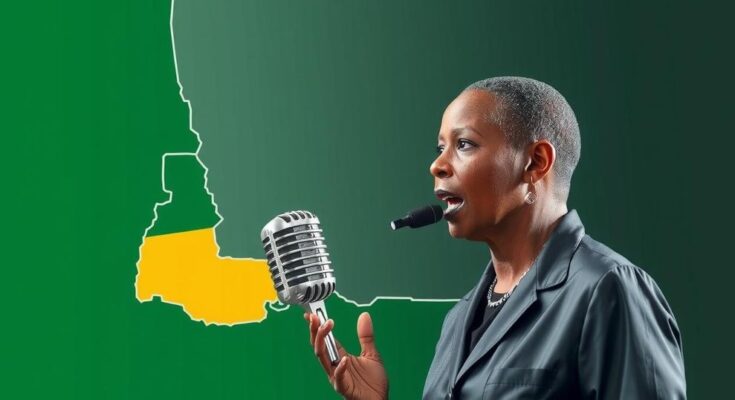Voters in Botswana have repudiated the long-ruling BDP after nearly six decades, with preliminary results showing the party winning just one parliamentary seat. In contrast, the UDC, led by Duma Boko, secured around 20 seats and is expected to form a new government, positioning Boko to become the next president. This election reflects dissatisfaction with the BDP’s handling of economic issues and a desire for change.
Botswana has witnessed a significant political shift as voters have opted against the long-dominant Botswana Democratic Party (BDP), which had been in power since the country gained independence in 1966. Preliminary election results indicate that the BDP has secured merely one parliamentary seat as of early Friday, marking an unprecedented departure from its nearly six-decade reign. In contrast, the Umbrella for Democratic Change (UDC), under the leadership of human rights attorney Duma Boko, is anticipated to emerge as the new ruling party with approximately 20 seats, positioning itself to surpass the 31-seat threshold necessary for a legislative majority. Duma Boko, who is poised to become the next president once the parliament convenes, has encouraged his supporters to “maintain vigilance and discipline” as they navigate this political transition. This victory follows a period of declining economic performance and high unemployment rates, which have contributed to the waning popularity of the BDP, previously led by President Mokgweetsi Masisi since 2018. Despite a campaign promising change, the BDP’s appeal fell short in convincing voters to extend their trust to the party.
The election results in Botswana signify a dramatic turning point in the nation’s political landscape, characterized by the rejection of a party that has historically dominated governance since independence. The BDP’s longevity in power stands in stark contrast to the recent electoral success of the UDC, which reflects widespread public dissatisfaction with the ruling party’s management, particularly relating to economic issues such as growth and employment. The anticipated ascent of Duma Boko to the presidency signals not only a change in leadership but also a potential shift in policy direction for Botswana as it navigates the challenges ahead.
The recent elections in Botswana represent a monumental reconfiguration of the country’s political framework, as the electorate has decisively moved away from the BDP after 58 years of governance. The emergence of the UDC as the prominent political force, led by Duma Boko, is indicative of changing public sentiment and a demand for renewed leadership capable of addressing the pressing socio-economic concerns that have contributed to the BDP’s decline. Consequently, this development could herald a new era in Botswanan politics, with significant implications for the future governance of the nation.
Original Source: www.bbc.com




